Back to School August 2021 Update
Please see link to Back-to-School video (from August 2021) https://youtu.be/0Mo6vBkJDw8, which deals with the following questions and answers:
- The rights of a school to ask whether your child has been vaccinated against Covid-19
As matters stand, there is no lawful basis to ask whether your child has been vaccinated against Covid-19. The most important piece of guidance to support this position was published by the Office of the Data Protection Commission on the 22nd of June 2021. This document specifically concerns the processing of Covid-19 vaccination data in the content of employment, however, the same advice could be applied in many other settings, including, in my view, all educational institutions (which includes primary school, secondary school, third level, and any type of training course).
The guidance published by the Data Commissioner states:
“in the absence of clear advice from public health authorities that it is necessary for all employers and managers of workplaces to establish vaccination status of employees and workers, the processing of vaccine data is likely to represent unnecessary and excessive data collection for which no clear legal basis exists. This is particularly the case when there is no public health advice pertaining to what the purpose of such data collection would be.”
What this means is that, unless the Department of Health, or another official public health authority, advises that schools must collect the vaccination status of pupils for a particular purpose, then there is no lawful basis to do so.
2.The rights of a school to require your child’s temperature to be checked each day as a condition of admission
Both vaccination status data and temperature checking data are special categories of data under the General Data Protection Regulations, this means that the school (or employer if you are a teacher in a school) cannot simply ask for this information, without having a lawful basis to do so. With regard to temperature checking, it is worth noting that the Office of the Data Protection Commission issued guidance in 2020 to the effect that temperature checking in the workplace would only be considered necessary and proportionate in circumstances where public health authorities or other relevant authorities are recommending such measures. We can use the same logic with regard to considerations around temperature checking in schools. In this regard it is worth noting that the Covid-19 Response Plan for the Safe and Sustainable Re-opening of Primary and Special Schools and Post Primary Schools published in August 2021 make no reference to a requirement to check a child’s temperature upon entering a school, therefore, unless your child’s school has been identified as particularly high risk, the school in question must justify why any consequent processing of personal data is necessary.
- The age at which children can provide consent to medical treatment without parental knowledge or consent
Section 23 of the Non-Fatal Offences Against the Person Act 1997 provides that a person over the age of 16 years can give consent to surgical, medical or dental treatment without needing to obtain consent from their parents or legal guardian. In light of same, if your child is over the age of 16 years, they may be approached in the school or by their GP to see if they wish to take the Covid-19 vaccine, so you should ensure that your child is educated on the risks versus the benefits of this vaccine; ensure they are aware that they may be approached while in school; and ensure they know that the vaccine is not mandatory.
The law with regard to children under the age of 16 years is less straight forward in Ireland. I say this given guidance issued by the HSE in their National Consent Policy Version 1.3, which at Part 2 deals with Children and Minors and confirms that it may be possible for children under the age of 16 years to provide consent to medical treatment, without parental knowledge or consent, if that child is considered a Mature Minor. A Mature Minor being a child, who is considered by the health care provider, to have sufficient understanding and intelligence to enable that child to understand what is being proposed with regard to medical treatment. The HSE Consent Policy goes on to state that the concept of Mature Minor is accepted in many other jurisdictions such as Northern Ireland, Scotland, New Zealand, Australia and Canada.
With regard to children under the age of 16 years, I would again advise parents to ensure that their child is educated on the risks versus the benefits of this vaccine; ensure they are aware that they may be approached while in school; and ensure they know that the vaccine is not mandatory. With regard to children under the age of 16 years, I would also advise parents to send both their child’s school and their GP a non-consent form advising that you do not consent to the Covid-19 vaccine being administered to their child without their prior written consent and confirming that their child does not have the maturity, understanding or intelligence to give informed consent without parental involvement and that in this regard should a decision be made by the school or healthcare provider that their child is considered a mature minor, they shall hold them personally liable for loss, damage, injury and interference with their constitutional rights to safeguard the welfare of their child.
- Whether it would be possible to make mandatory in law the Covid-19 vaccine for children in schools
It my view the Covid-19 vaccine will not be made mandatory in law for primary, second or third level education. I think it is far more likely that educational institutions, in concert with the government, will employ coercive measures to encourage pupils to take the vaccine.
The following constitutional protections exist with regard to mandatory vaccination in educational settings, all of which would make it problematic to mandate the Covid-19 in law:
- Article 42.1 which states “The State acknowledges that the primary and natural educator of the child is the Family and guarantees to respect the inalienable right and duty of parents to provide, according to their means, for the religious and moral, intellectual, physical and social education of their children.”
- Article 42.4 which states “The State shall provide for free primary education”
This Article 42.4 is particularly important as in 2019 Simon Harris sought advice from the Attorney General around the legality of mandating vaccinations in school and he was advised that it would be “legally challenging” given a number of competing protections under the Constitution, but he specifically mentioned the right to free primary education as being a barrier.
- Article 40.3.1 which concerns the unenumerated right to bodily integrity, which was first recognised in 1965; and
- Article 41.1 which states “The State recognises the Family as the natural primary and fundamental unit group of Society, and as a moral institution possessing inalienable and imprescriptible rights, antecedent and superior to all positive law.”
- Whether one parent or two parent consent is required for medical treatment for your child (which includes the Covid-19 vaccine)
Under current Irish law, the mother has automatic parental responsibility for the child.
However, the father is also given parental responsibility if:
- he is married to the mother at the time of the child’s birth;
- they marry after the birth of the child; or
- if both adopt the child together.
If a child is born outside marriage the mother is given automatic responsibility for all decisions relating to the child, however the father has automatic guardianship if he has lived with the mother for 12 consecutive months, including 3 months after the child is born, (but this 12-month period must have commenced after January 2016).
The father of the child can also apply to the Court to become the child’s legal guardian.
With respect to legally separated parents, unless a Court Order states otherwise, both parents have responsibility for medical treatment for the child.
So, in certain circumstances such as where the parents never married, lived together and where the father has not sought guardianship through the Courts, the mother has sole responsibility for making medical decisions for the child, including whether the child should be vaccinated.
In circumstances where the parents were married before or after the child’s birth, lived together or are legally separated, both parents have responsibility for the medical decisions for the child, however, there is currently discussion in health and social care as to whether one or both parents or legal guardians must consent to medical treatment for a child, with the generally accepted principle in other jurisdictions being that healthcare providers will not be held liable for battery in criminal law if they administer medical treatment, including vaccination, where they have secured the consent of one parent.
This means one parent consent will likely be accepted by schools, GP’s and vaccination centres in Ireland with regard to the administration of the Covid-19 vaccine for children.
- What is informed consent
According to the HSE guidance titled “Consent for Vaccination for COVID-19: Guiding Principles, dated 5 May 2021”, consent is the giving of permission or agreement for an intervention such as a vaccination following a process of communication about the proposed intervention.
Informed consent is stated to involve “a process of communication between a healthcare worker and a person that enables that person to have a clear understanding of the nature of the intervention, and likely risks and benefits of receiving it, thus enabling the person to make an informed choice about whether or not to proceed.”
The HSE guidance goes on to state that “For informed consent to be valid, the person must:
- Have received sufficient information in a comprehensible manner about the nature, potential risks and benefits of the proposed intervention, of any alternative intervention and of not receiving the intervention,
- Not be acting under duress; and,
- Have the decision-making capacity to make the decision (even if requiring support to do so).
- Can your child’s school require that they be tested for Covid 19 using a PCR test if they are a close contact
The only reference to mandatory treatment is set out in Section 11 of the Health (Preservation and Protection and other Emergency Measures in the Public Interest) Act 2020, which deals with the detention and isolation of persons in certain circumstances.
Section 11 provides if a medical officer believes in good faith that:
(a) a person is a potential source of infection, and (b) the person is a potential risk to public health, and (c) his or her detention and isolation is appropriate in order to— prevent, limit, minimise or slow the spread of Covid-19, and minimise the risk to human life and public health, and (d) such person cannot be effectively isolated, refuses to remain or appears unlikely to remain in his or her home or other accommodation arranged by the HSE – the officer may in writing order the detention and isolation of such person in a hospital or other place until such time as the medical officer certifies that the person’s detention is no longer required.
So, it is only under circumstances where a person has been detained in this way, that there is a possibility of them being forcibly subjected to medical treatment, including testing.
What this means is, in my view, if you are willing to detain your child at home for 14 days or as recommended, upon becoming aware that your child is a close contact, then there is no lawful basis to require your child to be tested for Covid-19 using a PCR or any other kind of test.
Please see Return to School August 2021 documents here: link




 Photo by National Cancer Institute on Unsplash
Photo by National Cancer Institute on Unsplash